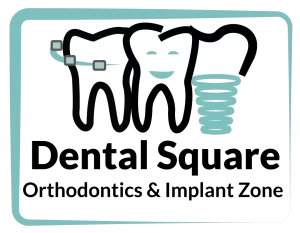What is Surgical Tooth Extraction?
Surgical tooth extraction is a procedure employed when a tooth cannot be easily accessed or removed through standard extraction methods. This can occur for various reasons, including impacted wisdom teeth, fractured teeth, or teeth with complex root structures.
When is Surgical Extraction Necessary?
- Impacted Wisdom Teeth: Wisdom teeth, the third set of molars, often emerge in tight spaces or at odd angles, requiring surgical extraction to prevent complications such as impaction, infection, or damage to adjacent teeth.
- Broken or Fractured Teeth: Teeth that have broken off at the gum line or have extensive decay may necessitate surgical extraction to remove all remnants and prevent further complications.
- Irregular Tooth Eruption: Teeth that have not fully erupted or are positioned in a way that makes traditional extraction challenging may require surgical intervention.
- Preparation for Orthodontic Treatment: In some cases, teeth may need to be removed to create space for orthodontic treatment, especially in instances of overcrowding.
The Surgical Extraction Process: A Detailed Overview
- Preparation: Before the procedure, a thorough examination and X-rays are conducted to assess the tooth's condition and determine the most appropriate approach.
- Anesthesia: Local anesthesia is administered to ensure the patient is comfortable and pain-free during the extraction. Sedation options may also be discussed based on the complexity of the case and patient preferences.
- Incision and Access: In surgical extraction, an incision is made in the gum tissue to access the tooth. This allows the dentist or oral surgeon to reach and remove the tooth effectively.
- Extraction: The tooth is carefully extracted using specialized instruments. For impacted teeth, the dentist may need to section the tooth into smaller pieces for easier removal.
- Closure: Once the tooth is removed, the incision is typically closed with stitches, promoting proper healing of the surgical site.
Post-Surgical Care: Your Road to Recovery
- Pain Management: Over-the-counter or prescribed pain medications help manage post-surgical discomfort.
- Oral Hygiene Guidelines: Gentle care of the surgical site, including avoiding vigorous rinsing or touching the area, is crucial to prevent infection.
- Dietary Restrictions: Soft foods and liquids may be recommended initially, gradually transitioning to a regular diet as healing progresses.
- Follow-Up Appointments: Scheduled follow-up appointments allow the dental team to monitor the healing process and address any concerns.
At Dental Square, we prioritize the comfort and well-being of our patients during every step of the surgical extraction process. If you are facing the possibility of surgical extraction or have questions about the procedure, schedule a consultation with our experienced team. We're here to provide precise and compassionate care, ensuring a smooth and comfortable experience for every patient.
